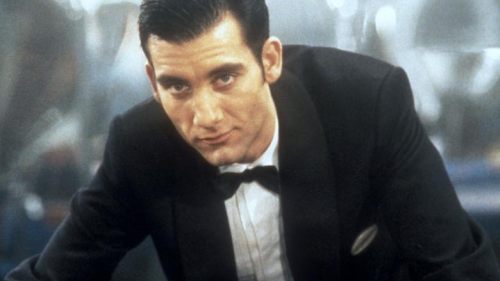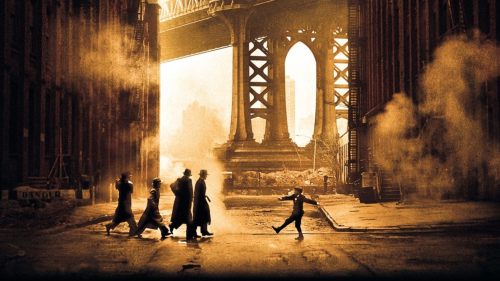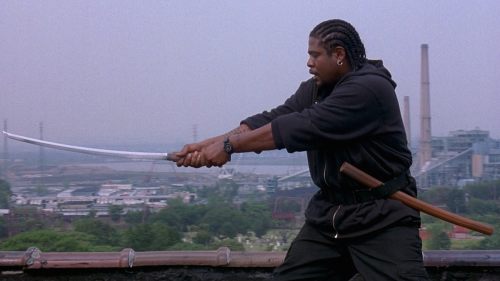A Case For Greatness: THE LEOPARD
Classics never die, but they seldom get replaced. Cinema is populated with enduring, venerated works of art that deservedly adorn list after list, but those lists are rarely updated, and less often expanded to include new, equally worthy entries. Organizations that give out annual awards are constrained not only by the limitations of formatting, but perspective - they can’t anticipate which film will survive the buzz of its initial acclaim or success and become part of the cultural firmament. And then there are just certain films or even genres that too infrequently receive the critical attention they deserve, are too obscure to break through to bigger audiences, or just aren’t taken seriously enough to merit consideration alongside the ones we “all” already know we love or respect. A Case For Greatness, this series, tries to argue for, and to champion, forgotten or underappreciated films in a variety of genres that may be worthy of being called “classics.”
As a moviegoer and Communications Studies student in the 1990s, I did a lot of research and investigation into films and filmmakers who were perhaps indisputably brilliant, but they represented a different diet - a different combination of ingredients - than I’d grown up on as a child of 1980s blockbusters. So when Luchino Visconti’s The Leopard was re-released into theaters, it was immediately deemed essential viewing, but it was also a “responsibility” - a plate full of vegetables I knew it was important to consume but wasn’t yet sure if I liked. Boy howdy was I wrong; Visconti’s adaptation of what is one of the top-selling and most important novels in modern Italian literature is not only astonishingly beautiful and phenomenally well-acted, but it tells a story whose thematic underpinning transcend its cultural specificities more with each viewing, and becomes more and more emotionally resonant the older and more aware you become (of film, and especially yourself) when you watch it. Not to be mistaken for a lost classic, The Leopard won the Palme d’Or in 1963, but it feels particularly relevant right now, and continues to be a film whose intellectual and emotional nutrients are more vital and nourishing than ever.
Starring Burt Lancaster, the film follows 19th-Century Sicilian nobleman Don Fabrizio as he witnesses an uprising that threatens to unseat him and the Italians of his generation from their place of comfort and privilege. Father to seven children and an ambitious nephew, Tancredi (Alain Delon), he regards the insurgency with grace and bemusement; though those in charge will change, he observes, little else ultimately will. But when Tancredi falls for Angelica (Claudia Cardinale), the beautiful daughter of wealthy buffoon Don Calogero (Paolo Stoppa), Don Fabrizio begins to awaken to the dangers of his obsolescence, and his replacement by a generation obsessed with wealth and success that has no real sense of the value of anything.
Asked to enter politics as a venerated and compassionate leader to help direct the state as it takes these new steps, Fabrizio’s honesty - and his recognition of the vagaries of politics - keeps him from accepting. But even as he grows more disillusioned by the inescapable changes happening around him, Fabrizio retreats into his developing infatuation with Angelica, with whom he shares a tender, romantic moment before that impatient and superficial new generation renders him useless in the country’s new order.
Burt Lancaster is an actor whose roles almost all feel like they could be summarily characterized as “tough but fair,” but there’s something here in Don Fabrizio (and under Visconti’s direction) that elevates that grace and gravitas to something almost mythic. Certainly the material complements his natural authority, but Lancaster seems almost to be witnessing his own diminishing importance as a movie star in the role, just as the 1960s - certainly abroad, but especially in the U.S. - descended into tumultuous unrest. He possesses a level of elegance that feels unmatchable by actors - by anyone - today, but through the character he combines that with a detached but deeply empathetic wisdom that he applies to each new shift in his family dynamic, the obstacles to his opulent lifestyle, and ultimately, the restless but (to him) predictably self-reinforcing political climate that is quietly pushing his generation out.
Fabrizio isn’t perfect - bemoaning his wife’s chastity after seven children, he defends having lovers to the family priest, Father Pirrone (Romolo Valli) - but there’s something wonderful and tragic about his adherence to tradition, honoring the responsibilities, and more often, the indulgences of being a part of a privileged class, while distancing himself from the complexities and responsibilities of being a literal elder statesman. What he mourns isn’t the death of his own traditions, but of tradition itself; he watches with distant unhappiness, but understanding, as Tancredi initially rushes off to fight in Garibaldi’s army as a revolutionary, but quickly abandons those principles when the opportunity arises to establish a financial foothold and fortify his own fortunes within the new political establishment. Don Calogero exploits his daughter’s beauty to seduce both Tancredi and Fabrizio, and Fabrizio watches himself become irrelevant as Calogero swoops in to stake his claim in high society - a greedy, incompetent, tasteless vulture fixated on material wealth without regard for the underlying rituals and values that give that pageantry meaning.
Meanwhile, he watches military officials puff their chests and regale their tablemates with stories of their valor and honor, which Fabrizio has no time for, and certainly no respect. His astute understanding of, say, his nephew’s craven impatience - Tancredi’s willingness to put in the time and grease palms and compromise his integrity as a politician - is both a source of bemusement and sadness. It is another facet of aging - knowing how things work, understanding between good and bad, anticipating what’s to come - and not being able to stop it, or maybe just being too tired or too marginalized to do so. And then Angelica shows up, reviving his tired blood and reminding him what it was like to be young and in love and inspired, for the right or wrong reasons.
Their dance scene is beautifully bittersweet - a study in choreography, in character, in staging, in weaving together so many different elements into the same transcendent tapestry. Cardinale is absolutely stunning, and her performance - heaving, sensual, unrestrained from the niceties that Fabrizio’s generation, and his descendant, observe with careful fealty - is an explosion of life, irrepressible and irresistible, into an aging community. That the onlookers, including a conspicuously jealous Tancredi, watch almost in shock at the chemistry that crackles between the two of them on the dance floor, comes as no surprise. It’s a culmination of the events in the film, and a precipitous spike or last reminder for Fabrizio that those days of passion are now far behind him.
Then there is of course the political component of the story, reflective of real-life events in Italian history, but remarkably fluid in their relevance to virtually every society. Tancredi, once fired up and in imminent danger of ruining his reputation by aligning himself with the “wrong crowd,” soon sheds those allegiances to team up with the establishment, renouncing his earlier statements (and commitments) with the ease and indifference of a nobleman shedding his waistcoat. His ambitions stand in stark contrast with Fabrizio’s, who cherishes continuity and sees the changing of the guard as a cosmetic difference at best; and the elder statesman may be right. But the conflict, again, becomes one less of youth over age than impudence and hunger over experience and wisdom - making the lessons Fabrizio has already learned ones that Tancredi and his generation will have to experience for themselves.
Visconti’s depiction of the period is absolutely phenomenal - even as he covers Fabrizio and his noble excesses with a fine layer of dust, he photographs them with an elegance and beauty that makes you want to be there. But his sense of humanity is what makes the film such an enduring portrait of generational transition, and Fabrizio’s plight to be one that veers poetically from bittersweet to tragic. In the end, Lancaster’s character embodies an era, an Italy, that was not just disappearing, but one that was dismissed. Which makes The Leopard a sobering, essential reminder that even as we forge a path for ourselves and our generation, it’s important, and beneficial, to show respect, and to try and learn from the experiences of our predecessors. Like many older movies, it’s a movie easily enough forgotten when there’s so many new ones to choose from, but it has much to teach us if we watch with the right eyes - not just about an art form, but about ourselves.



